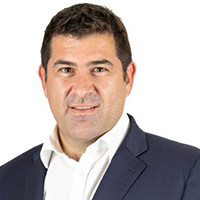
 UBS is one of the world’s largest private banks and winner of multiple awards, including Global Best Overall Private Banking Services (1). Rachel Whittaker, Director of Sustainable Investment at UBS Wealth Management in Zurich, and Robert Broughton, Senior Client Advisor at UBS Wealth Management in Jersey, present a guide to the basic elements of this growing area of investment
UBS is one of the world’s largest private banks and winner of multiple awards, including Global Best Overall Private Banking Services (1). Rachel Whittaker, Director of Sustainable Investment at UBS Wealth Management in Zurich, and Robert Broughton, Senior Client Advisor at UBS Wealth Management in Jersey, present a guide to the basic elements of this growing area of investment
What is sustainable investing?
Sustainable investing is an investment approach that incorporates considerations of environmental, social and governance (ESG) criteria into investment decisions.
It is important to remember that sustainable investors still expect to achieve returns, which differs from philanthropic investors, who may be willing to sacrifice partial or full returns in order to achieve a measurable environmental or social (E&S) impact.
There are three different strategies that a sustainable investor can take to achieve their goals and each strategy will depend on the motivation of the individual involved:
• Impact Investing: An investor will include investments in their portfolio that intend to generate measurable E&S impact alongside a financial return.
• Integration: An investor will integrate ESG factors into traditional investment processes to improve portfolio risk/return.
• Exclusion: An investor will exclude companies or industries from their investment portfolio that are not aligned with their values.
How do investments have an impact?
All investments have an impact, be it positive or negative. With sustainable investment, an individual can have an influence in one of three ways:
• Financing: Investors can choose to directly finance impactful companies or projects; for example, by investing venture capital in an education technology firm focused on improving access for underprivileged populations.
• Stewardship: Beyond the provision of capital, investors can influence the companies they invest in to maximise environmental or social good. Investors can, for example, engage with management in order to persuade companies to adopt more sustainable practices. If the effect of these efforts can be measured and traced back to the investors’ actions, this may be considered impact investing.
• Signalling: Finally, simply by investing in companies that investors believe are having a positive impact on people and the planet, and divesting in companies that aren’t, investors can signal to the market that ESG factors matter. If enough investors do the same, this can lead to positive change.
What is the future for sustainable investing?
In 2016, $23trn of global assets were managed sustainably. This is a significant portion of the total value of global stock exchanges that were valued at $69trn in 2017.
According to a 2017 survey of institutional investors, 80% considered ESG criteria to be a major component of their investment strategy and the majority cited financial considerations as a key driver in their decision. A total of 69% stated that integrating ESG considerations improved returns, while 68% believed that it reduced volatility.(2)
Sustainable investing is no longer a niche investment theme and, at UBS, we want to shape the future of sustainable investing.
We believe these investments can deliver returns with less risk to your money and we are confident that sustainable investing will soon become one of the world’s most widely accepted ways of investing. (3,4)
Furthermore, as the world’s leading wealth manager, we feel responsible for helping change things for the better. We have the capital, solutions and expertise to make a big difference globally.
Find out more
If you would like more information on how UBS Wealth Management in Jersey can support your social investment opportunities, please contact:
Robert Broughton, Senior Client Advisor UBS AG, Jersey Branch, 1 IFC, St Helier, Jersey JE2 3BX
01534 701107
robert.broughton@ubs.com
(1) Euromoney Private Banking Survey 2019
(2) Global Sustainable Investment Alliance, Market Watch
(3) ESG and financial performance: aggregated evidence from more than 2000 empirical studies, Journal of Sustainable Finance and Investment, Gunnar Friede, Timo Busch, Alexander Bassen, 2015
(4) Introducing the Impact Investing Benchmark, Global Impact Investing Network and Cambridge Associates, 2015
© UBS AG, Jersey Branch is authorised and regulated by the Jersey Financial Services Commission for the conduct of banking, funds and investment business. UBS AG, Jersey Branch is a branch of UBS AG (a public company limited by shares, incorporated in Switzerland whose registered offices are at Aeschenvorstadt 1, CH-4051, Basel and Bahnhofstrasse 45, CH-8001 Zurich) with its principal place of business at 1 IFC, St Helier, Jersey JE2 3BX. Terms and Conditions are available upon request. © UBS 2019. All rights reserved. www.ubs.com/jersey
• This advertising feature was first published in the May/June edition of Businesslife magazine